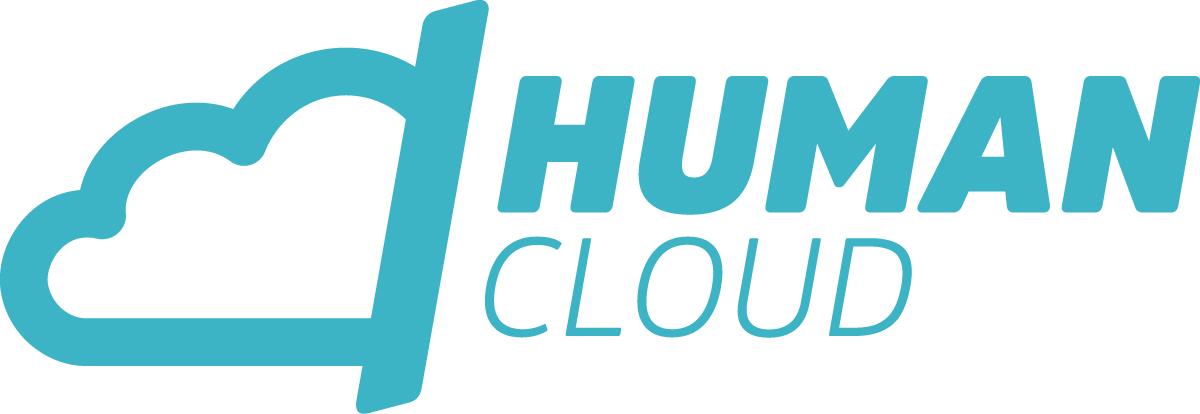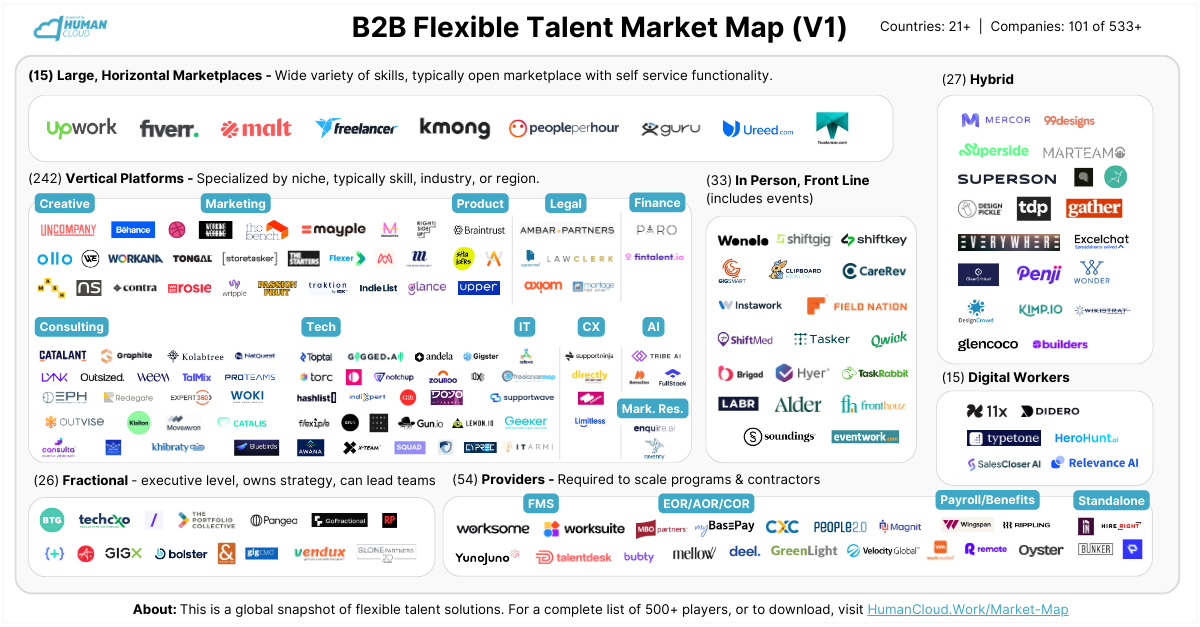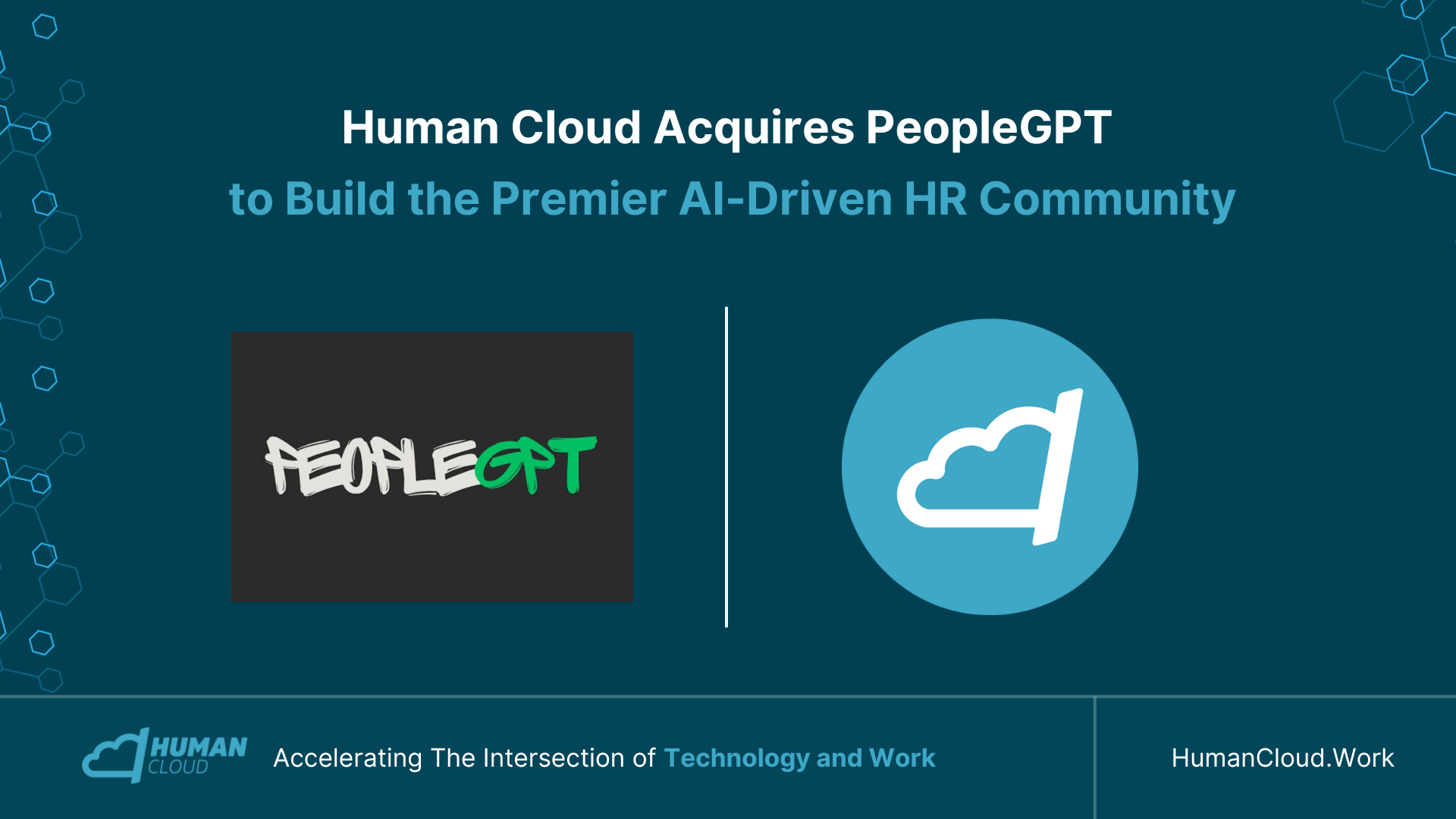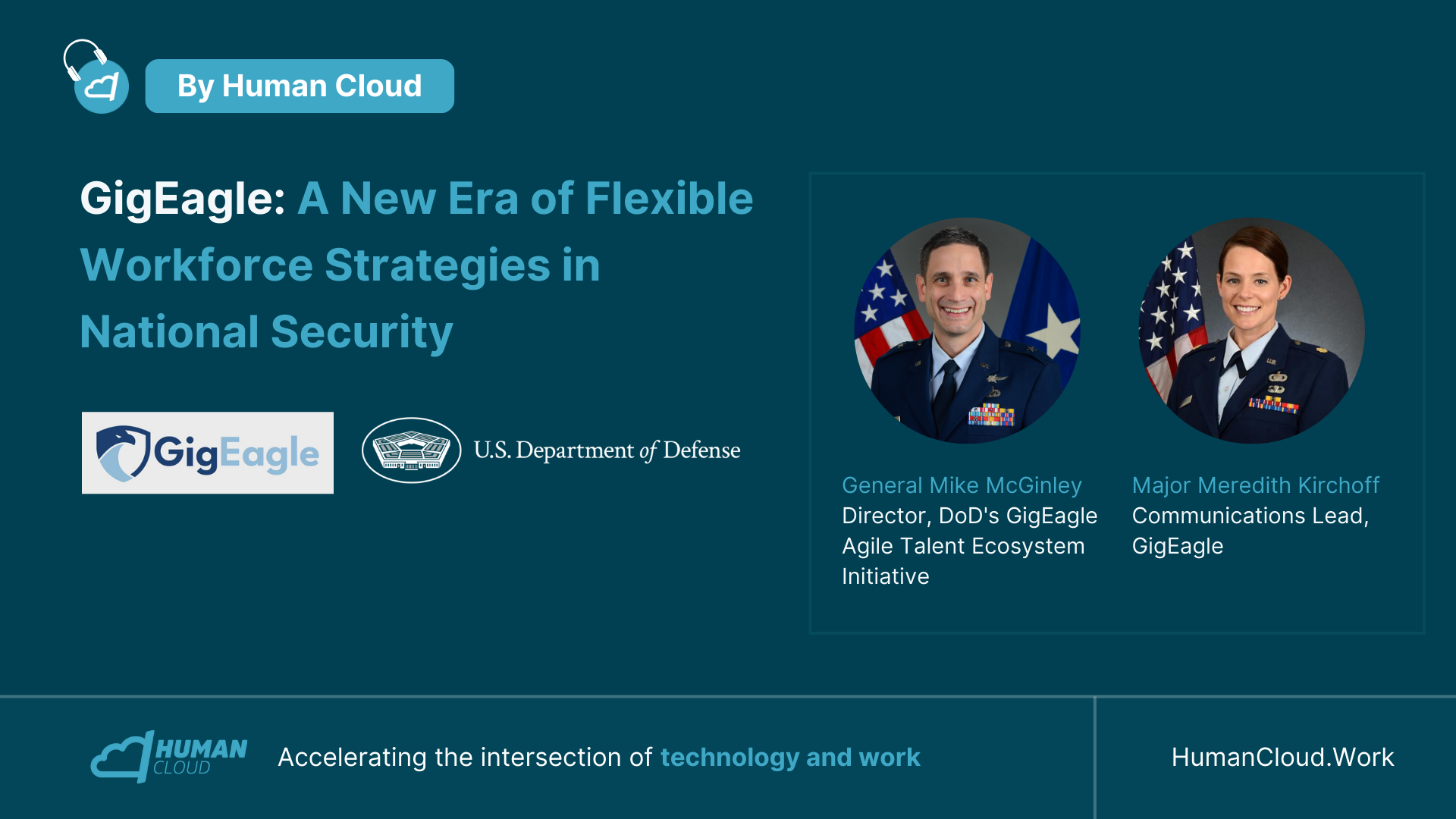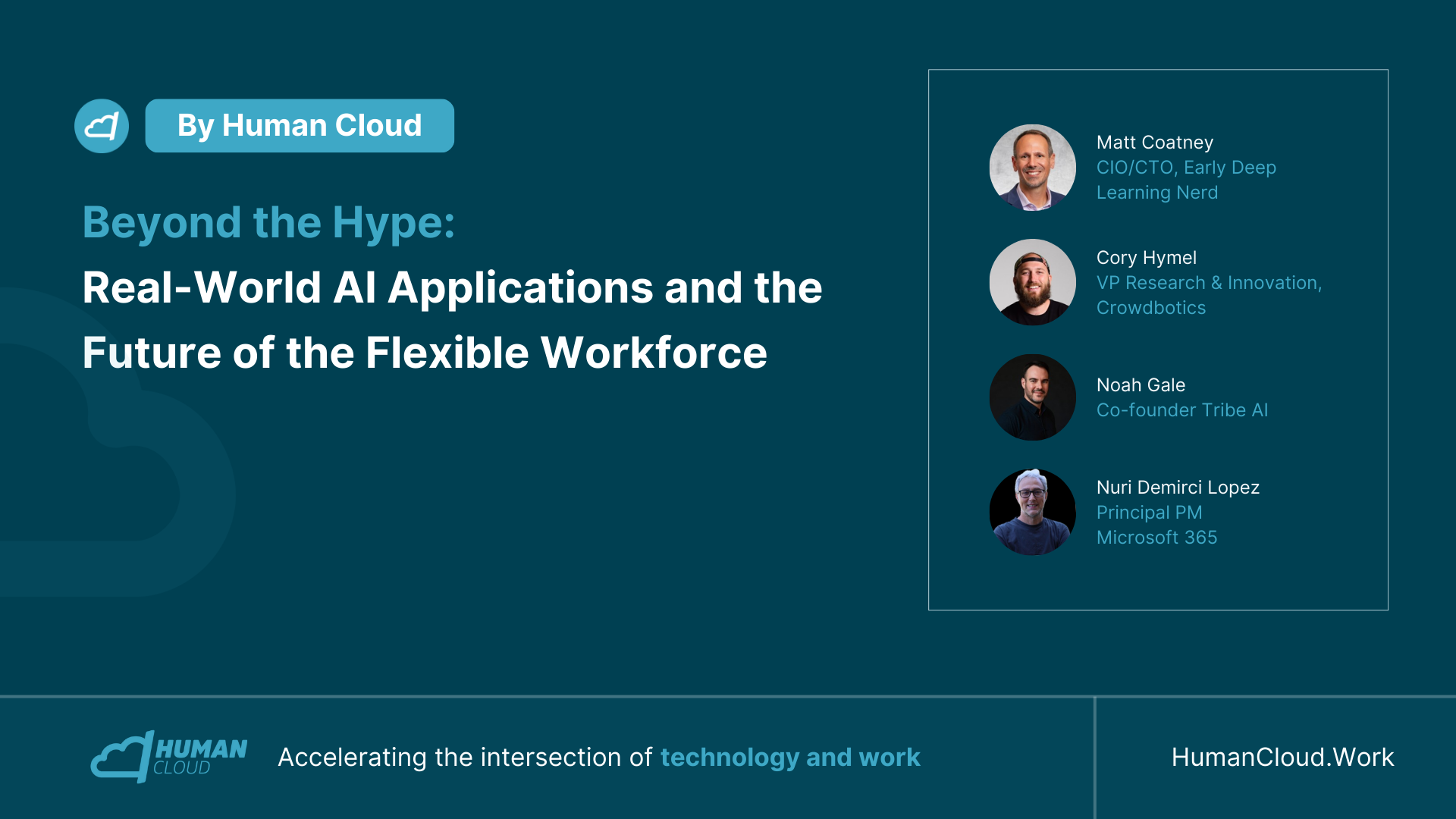

Human Cloud
Where technology and talent merge to create unparalleled innovation
Share this!
Want to Access The Full Episode?
This is a summary from Human Cloud’s AI Emergency Episode.
To access the full episode with quotes from each panelist, purchase Knowledge Hub.
Recap
We brought together leading AI experts to explore the latest advancements and their impact on businesses and the workforce. The conversation covered everything from cutting-edge AI models to real-world applications transforming industries. This article highlights key insights from the discussion, focusing on how AI shapes the flexible workforce.
The Rise of New AI Models: DeepSeek and Beyond
The discussion started with reactions to the announcement of the DeepSeek AI model. Panelists noted that DeepSeek is comparable to leading AI models, boasting innovative training methods. However, some experts questioned its reportedly low training costs, suggesting the investment may be much higher. Despite this, there was broad agreement that competition from DeepSeek and other emerging models pushes the industry forward, driving continuous innovation. The rapid evolution of AI has led to an influx of new models and features, with companies like OpenAI frequently releasing updates to stay ahead.
Practical Applications of AI in the Workforce
The conversation then shifted to how AI is already making an impact. The panelists emphasized that AI extends far beyond generating text and images—it’s solving real business challenges. Key applications discussed included:
- Microsoft Co-Pilot: Nuri, a Product Manager at Microsoft, highlighted its versatility, from customer support and cybersecurity to automating note-taking and summarizing meetings.
- AI in Hiring: AI is streamlining recruitment by assessing candidates’ skills, and emotional intelligence, and even detecting AI use during interviews.
- AI in Legal: AI assists with contract reviews, legal research, and redlining, allowing lawyers to focus on high-value advisory work. Its ability to process complex legal language is particularly valuable.
- AI in Code Development: Tools like GitHub Copilot are helping developers write code faster and enabling non-technical founders to build startups.
- Agentic AI: AI-powered agents are automating workflows, such as taking meeting notes and distributing them automatically.
Build vs. Buy: Navigating the AI Landscape
A critical question for businesses is whether to develop AI solutions or leverage existing platforms. The panelists advised that the decision depends on a company’s core strengths. If AI is a key differentiator, building or investing in proprietary solutions makes sense. Otherwise, fine-tuning existing models or using off-the-shelf tools may be a smarter approach.
Organizations must balance experimentation with strategic planning—allowing employees to explore AI tools while simultaneously crafting a long-term AI strategy. Factors like workflow complexity, vendor lock-in, and cost should also be considered when deciding whether to build or buy AI tools.
The Future of AI and Work
The panel concluded by looking at how AI will reshape the workforce. With rapid advancements, staying open to change and leveraging AI for increased productivity will be essential. The rise of AI-driven agents is one of the most exciting trends, with the potential to fundamentally change business operations.
As AI evolves, companies must remain adaptable, informed, and ready to experiment. The organizations that embrace AI strategically will be best positioned to thrive in this new era.
Getting Started with AI: Costs and Timelines
What will it take to get started?
- Cost: While experimentation is relatively inexpensive, deploying AI for enterprise applications often requires six-figure investments. Smaller projects, like building a custom wrapper around an AI API, can cost under $100K.
- Building vs. Buying: Companies must assess whether to build AI expertise internally or collaborate with external experts. Educating employees on AI tools is critical for adoption.
- Training: Upskilling internal teams is essential to ensure AI is effectively integrated into workflows.
Want to access the entire webinar? Log into or purchase a Knowledge Hub Membership today.
Ready to transform your business? Learn more about how Human Cloud can help connect you with the expertise and solutions you need. Visit Human Cloud today.
What Else Do You Get With Knowledge Hub?
Full access to Quarterly State of Talent Reports, along with:
- Stats: Steady drip of high level flexible workforce stats from a mix of sources updated quarterly.
- Expert Insights: 150+ Interviews with top enterprise executives, industry founders, policy experts, and practitioners.
- Enterprise Pulse: Monthly top challenges experienced by enterprises embracing flexible talent.
- Industry Landscape: Full control to download and own your placement.
